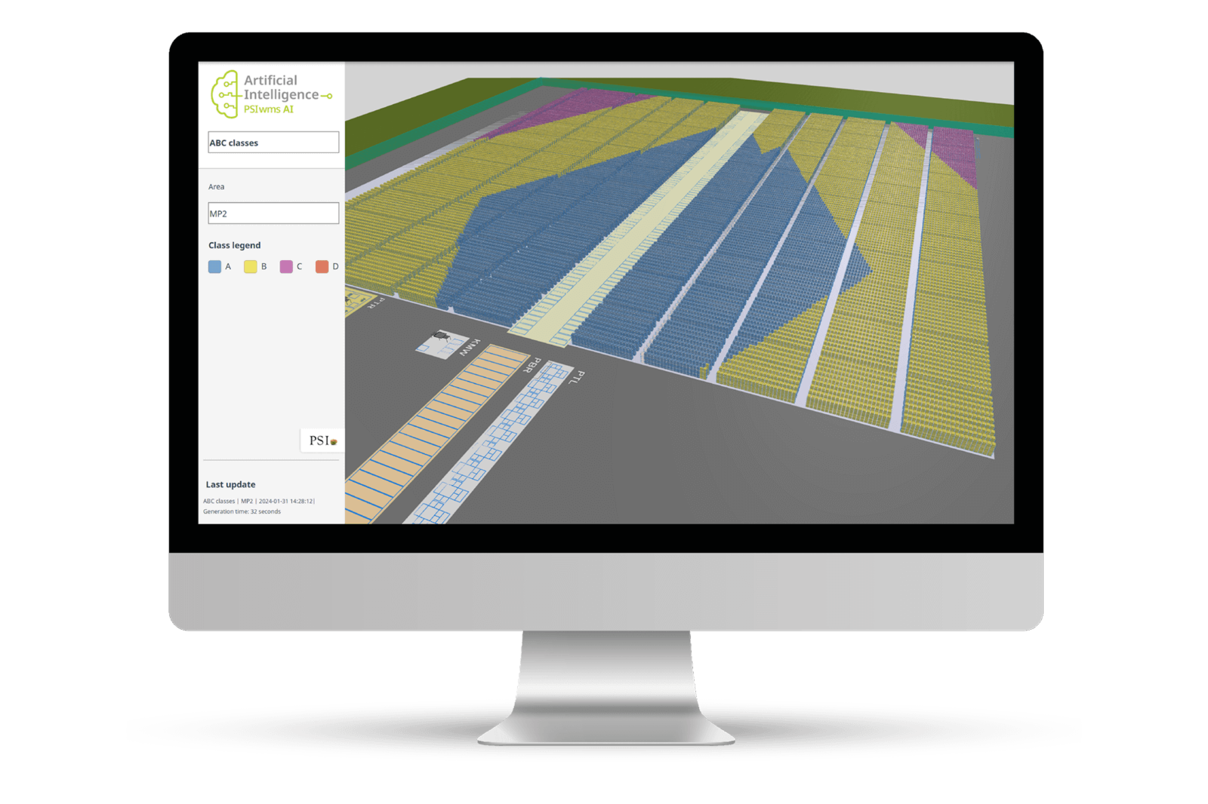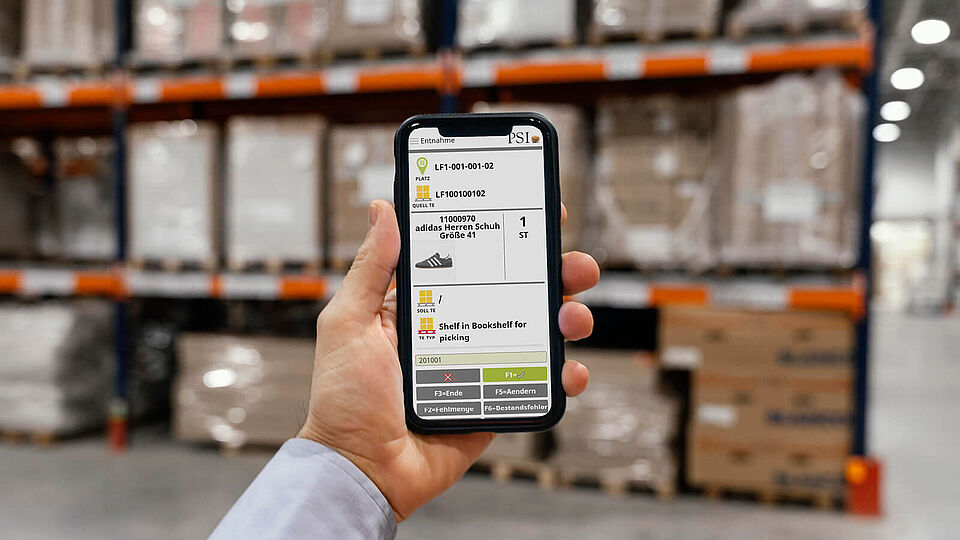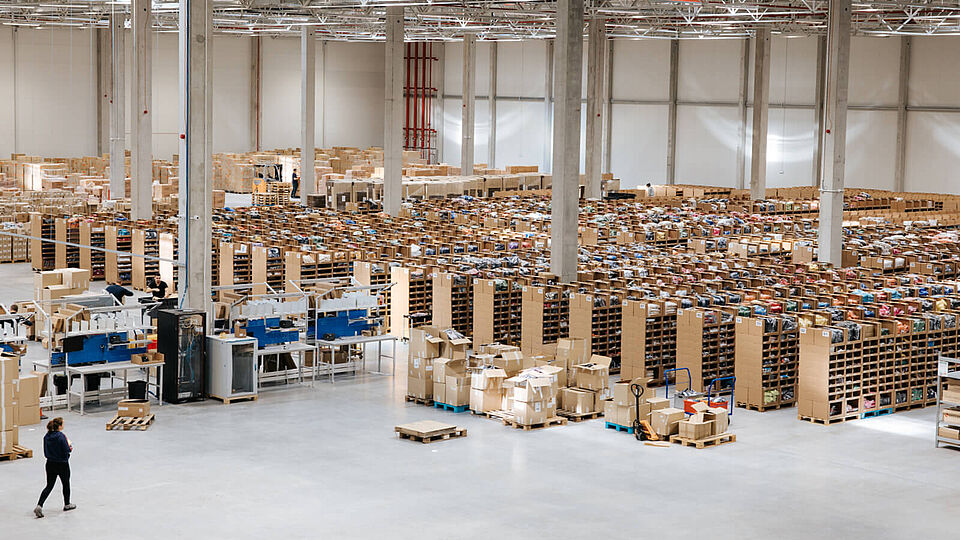Experts at Accenture predict that artificial intelligence will increase efficiency in logistics by more than 40% by 2035. The AI-based solution PSIwms AI was integrated into PSIwms for LPP. The result: significantly shorter picking routes and overall more efficiency in warehouse processes.
LPP: More than 30 years of success in Europe
LPP, the Polish clothing manufacturer and owner of 5 recognizable brands (Reserved, Cropp, House, Mohito, and Sinsay) is one of the e-commerce market leaders in Europe. With more than 2,000 shops and an extensive online offering, LPP is one of the fastest growing clothing companies in Central Europe with a vast distribution network operated and managed by its subsidiary – LPP Logistics. Based on a global supply chain, LPP Logistics distributes annually more than several hundred million pieces worldwide to reach nearly 40 countries in Europe, Africa and Asia.
The number of online orders has boosted massively in recent years reaching almost 30% of total LPP omnichannel sales.
AI-based solution to increase efficiency
Due to rising demand and high customer expectations, logistics and IT solutions need to be optimized without compromising the quality and speed of processing. The coronavirus pandemic has created additional hype in e-commerce and further intensified the requirements. Retailers and service providers are required to ensure the constant availability of their products and fast delivery. Rising fuel, material and labor costs are also forcing companies to look for new solutions to optimize processes.
LPP Group found support in its long-standing business partner PSI to fulfil these requirements. the PSIwms AI platform allows for their non-invasive testing and tuning using digital twin. The end customer is able to independently check various WMS system settings, various parameters of logistics processes and assess what impact these changes will have on key KPIs in the warehouse. It is possible to simulate (using production data) changes in the warehouse topology, check what impact the purchase of new warehouse automation devices will have on efficiency, and finally check whether the warehouse staff is able to handle the upcoming sales peak.
Using a solution based on artificial intelligence algorithms, we want to significantly increase the efficiency of order processing in online retail.

A unique feature: Direct integration into the WMS
The special feature of the PSIwms AI solution is its direct integration into the PSIwms warehouse management system. The processes in the warehouse are mapped using a calibrated simulation. The results of the simulation are therefore almost identical to those in the real warehouse. If there are changes in the WMS, these are automatically taken into account and integrated into the simulation. This distinguishes PSI's IT solution significantly from conventional simulation systems, where changes in real logistics processes have to be manually transferred to the simulation.
“The PSIwms AI platform is able to simulate a very large distribution center that has 750,000 warehouse locations and is operated by over 700 employees. Thanks to the parallelization of cloud computing, it is possible to test several hundred different warehouse operating scenarios within an hour.”, says Jerzy Danisz, Product Owner PSIwms.
Significant shortening of picking routes
In the first stage of the project, picking routes were optimized with the help of AI at the fulfillment center in Pruszcz Gdański, where LPP's e-commerce logistics processes are handled. The entire PSIwms AI platform was handed over to LPP Group at the beginning of 2023.
As part of the first implementations at LPP Group in 2022, picking path optimization was implemented based on solving the Traveling Salesman Problem (TSP) using artificial intelligence. TSP algorithms were created using simulations on the PSIwms AI platform and gave measurable effects in the form of shortening the path by approximately 31%, which translated into a 12% increase in the efficiency of the entire goods out process.
Thanks to the implemented solution, as the first tests show, the length of picking paths has been shortened up to 31%. This also translates into a significant increase in the efficiency of the warehouse picking process itself.
This was only the first step - Currently, the AI-supported batch picking algorithm has already been partially implemented in the LPP Logistics warehouse and has brought another 11% increase in the efficiency of goods out processes. It is worth emphasizing that this 11% is calculated in relation to the previously achieved values of the TSP algorithm (12%), so the total increase in process efficiency might even reach approximately 23%, depending on the warehouse topology (the batch AI algorithm is implemented in several e-com LPP Logistics warehouses). The value of approximately 23% achievable today will be further improved with the implementation of further components of the batch AI algorithm.
“The advanced AI-driven solution brings us several meaningful benefits. Both increase of the picking efficiency and workload reduction help us to optimize time to market pace. Those result in providing our customers even better performance and buying experience.”, says Sebastian Sołtys, CEO at LPP Logistics.
This case shows that the integration of AI-driven solutions in logistics operations has many advantages like cost savings and increased revenue. By using AI algorithms companies can streamline their logistics operations, improve efficiency, and ensure competitive advances.




